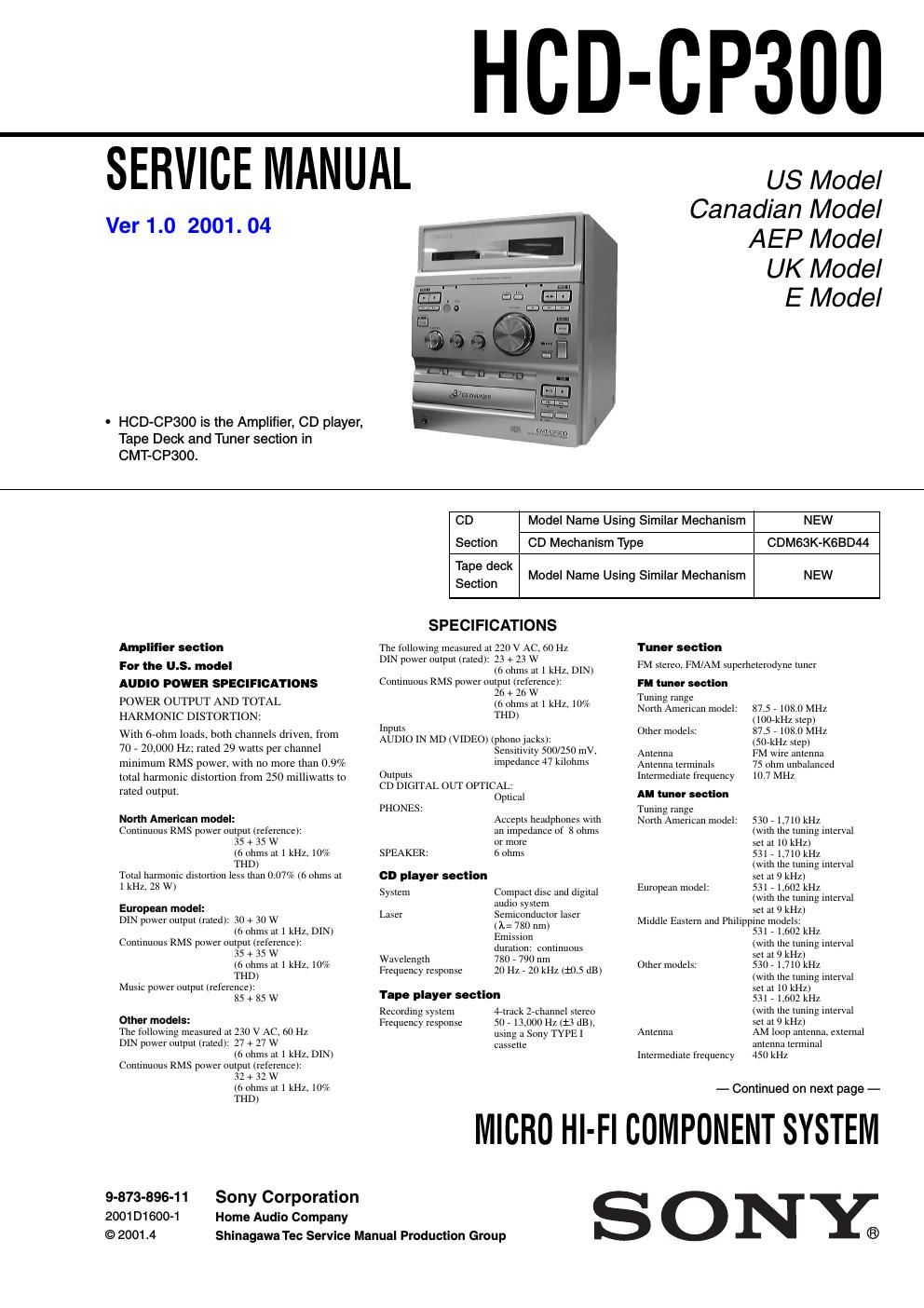Sony hcd cp 300 ver1 0
This is the 56 pages manual for sony hcd cp 300 ver1 0.
Read or download the pdf for free. If you want to contribute, please upload pdfs to audioservicemanuals.wetransfer.com.
Page: 1 / 56
